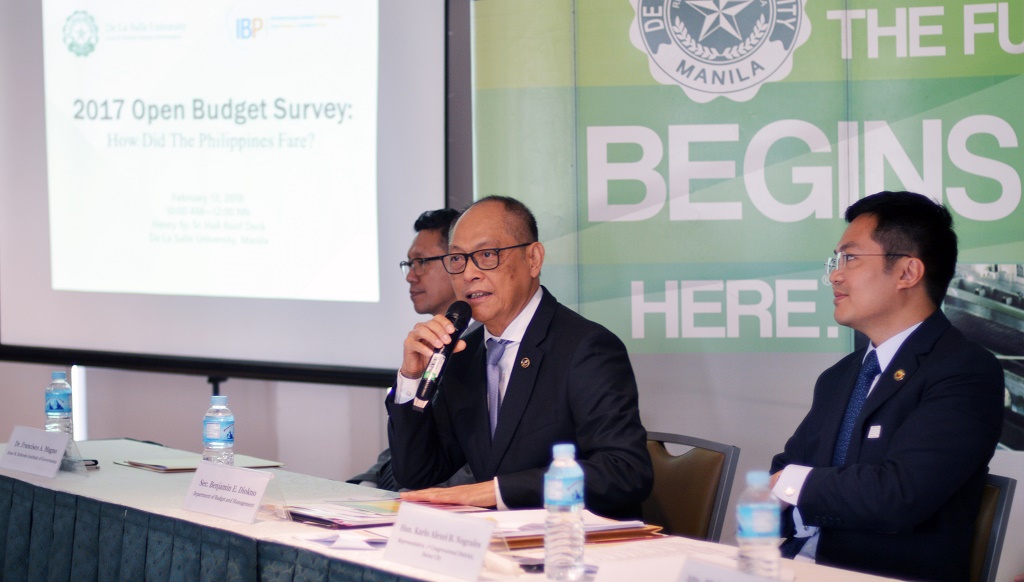
Good morning, everyone.
First of all, I would like to thank the Jesse M. Robredo Institute of Governance for organizing the public presentation of the results of the 2017 Open Budget Survey in the Philippines.
I would also like to thank Dr. Kiko Magno for undertaking the research vital to the International Budget Partnership’s assessment of the Philippine government’s fiscal transparency practices.
We are thrilled that the IBP has recognized our efforts in sustaining and improving on past reforms, as well as introducing new reforms in line with the Duterte administration’s commitment to accountability and transparency.
Being number 1 in Asia is even more exciting knowing that we are rising up in the rankings amid a competitive regional landscape.
The Regional Average for East Asia and the Pacific increased by three points, from 41 to 44. The Philippines’ 2017 OBI also rose by three points higher than its score in 2015, from 64 to 67.
Our current score surpasses our Philippine Development Plan target of 64 for 2017 and 2018. If we sustain our current performance, we will easily achieve our PDP target of 67 by 2019 and 2020. But we are more ambitious than that. We plan to improve and do even better and so our DBM targets are much higher - 69 by 2019 and 71 by 2021.
Aside from transparency, the Philippines’ also ranked high in Public Participation with a score of 41. The Philippines belongs to a select group of four countries that achieved a moderate score in the Public Participation category. The other three countries are New Zealand, Australia, and the United Kingdom – all first world countries!
We’re very proud of what we’ve accomplished to date. In surpassing our Asian neighbors, we have further cemented our position as a global leader in Open Government. It encourages us to persevere, to do even better, in the years ahead.
In line with our commitment to further increase transparency and participation in government, we have recently created a Fiscal Openness Working Group within our Department. This group will lead the development and implementation of a unified fiscal openness policy in the DBM.
To further institutionalize gains from our reforms, we are also pushing for the passage of a Budget Reform Bill in Congress. The Budget Reform Bill will put in place an Annual Cash-Based budgeting regime that is expected to quicken program delivery, as well as strengthen the focus and accountability of government as program outputs become more clearly linked to their appropriated budget.
This major change in budgeting, among a number of other administration reforms, is something we tackle during our Open Government Regional Dialogue series. As Chairperson of the Open Government Partnership Steering Committee and the Participatory Governance Cabinet Cluster, DBM is at the forefront in the promotion of game-changing governance reforms on fiscal openness and citizen engagement.
We want to make sure that citizens have a seat in the policy table and have a legitimate voice and vote, especially on issues that are important to them, and we are serious in our intent to sustain and expand such efforts moving forward.
Trust that we, in the DBM, will continue to engage our legislature, our constitutional bodies, and our citizens in our drive to enhance budget openness in the public sector.
Thank you very much for your support and continued engagement with the government.







